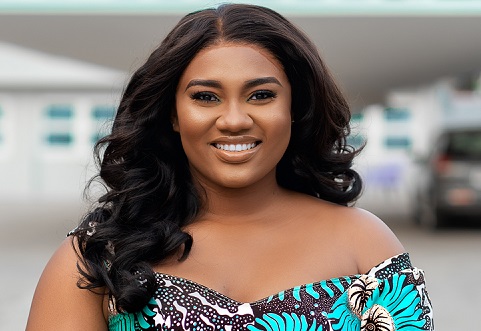Abena Korkor went nude again? Let's blame Twitter's Terms and Conditions
In this writeup, we consider the Twitter policies that allow users to post nudity and why that may be a problem for conservative efforts to promote public decency

Twitter allows nudity. That much is not contested. In the last twenty-four hours, the conversation that has been stirred by Abena Korkor allows for another rethinking of where national laws and policies of corporate bodies should converge or otherwise, depart. The trends on Twitter within this period have, at least, been about the newly published nude photos and videos of social media personality, Abena Korkor. In more ways than one, it has become expected that social media will light up over specific controversial happenings or such other incidences that distract from ordinary viewing on platforms like Twitter and Instagram, every now and then. But if there is ever a need to consider why this is a problem, our best bet is now.
Only a few months ago, another social media personality, Rosemond Brown, was convicted for a similar offence. In her case, she had posed naked in front of her son and published said photo on Instagram. Social commentaries that run on the matter focused on at least two subjects – her publication of obscenity and exposing her son to nudity. These constituted the principal arguments in the backlash that ended in court.
Even without dabbling in ‘whataboutism’, the context that is presented in this new scenario with Abena allows for significant refocusing on society’s perception of the use of social media. By all means, we can sympathise with the mental health issues that are raised every now and then, when matters of these sort arise and join the call for proper support services to be rendered to persons who are properly diagnosed with ailments of these sorts.
It is why this writing does not even offer to delve into the criminalities or otherwise of publishing nudity. Ghana’s Cybersecurity Act, 2020 expressly prohibits it – including broadcasts by third parties with or without the permission of the persons involved. It is nonetheless, from this provision of the Cybersecurity Act that our conversation takes proper form.
Consider this.
Twitter has a variety of policies on publishing media content, including adult material. The minimum required legal age for owning a Twitter account is 13 years. Ordinarily, it is expected that the platform will offer critical censorship policies that protect young users. For our purposes, let’s define young users as those persons who are between ages 13 and 18. In 2018, about 38 percent of Twitter users in the US were teenagers. That’s a lot of percentage figures!
The most relevant Twitter policies on nudity are the “Sensitive Media Policy” and the “Non-consensual nudity policy”. There is a broader third, generally called “Adult Sexual Content” which deals with the commercialization of sexual activities, products and services. This third, is not our focus in this writing.
Objectively, Twitter promises a lack of tolerance for the publication of “adult content within areas that are highly visible on Twitter, including in live video, profile, header or List banner images.” It makes for a good description of the general dislike for gratuitous displays of obscenity until the platform indicates that users may actually share such content nonetheless, and only need to add a veil that marks the account as sensitive. Known accounts that share pornographic content appear in searches nonetheless and are not masked with any such veil.
Granted that the non-consensual nudity policy expressly states that “pornography and other forms of consensually produced adult content are allowed on Twitter, provided that this media is marked as sensitive,” there is perhaps not enough to rely on when calling to focus the lack of inhibitions and the seeming inconsistency within Twitter’s advertised policy on nudity and adult content. Note, however, that this admonishing to mark tweets as sensitive is only at the discretion of the user. Hence, it is in the consideration of how this affects younger users that critical concerns ought to be raised.
There is little evidence to suggest that Twitter bars young users from accessing adult content. Unveiled as a righteous belief in free speech - and everything that comes with it, Twitter’s loose code on nudity means that anyone who accesses the platform can find pornography and every form of nudity, of course, if the user knows what he or she is searching for.
This loose code is why Abena Korkor can post a fully nude video without any repercussion from the platform. The conversation must nonetheless, be had, in order to keep to our prior-insisted stance on conservatism and socially accepted notions of right and wrong. While there may be no conventions on what constitutes nudity or semi-nudity, we may be justified in being eye-popped at any media whose subjects are fully unclothed. Liberals may tolerate our discomfort on this ground.
There is protection in the fact that where organizational laws are at variance with national laws, the country’s law should take preeminence. It may offer hope that calls for sanitization of media content on social media, music videos and other creative displays will see favorable outcomes. It is still unclear what outcomes will follow Abena’s recent outing. However, we can be sure that others like Rosemond who have been prosecuted in the past, will understand even better, society’s contempt for outward showing of nudity if Abena’s instance is treated with similar rigor.
For Twitter, perhaps, our interest will be better served when more persons are dealt with in accordance with the law - and/or medically, in a way that ultimately emphasizes that nudity is not a normal thing in Ghanaian societies.


